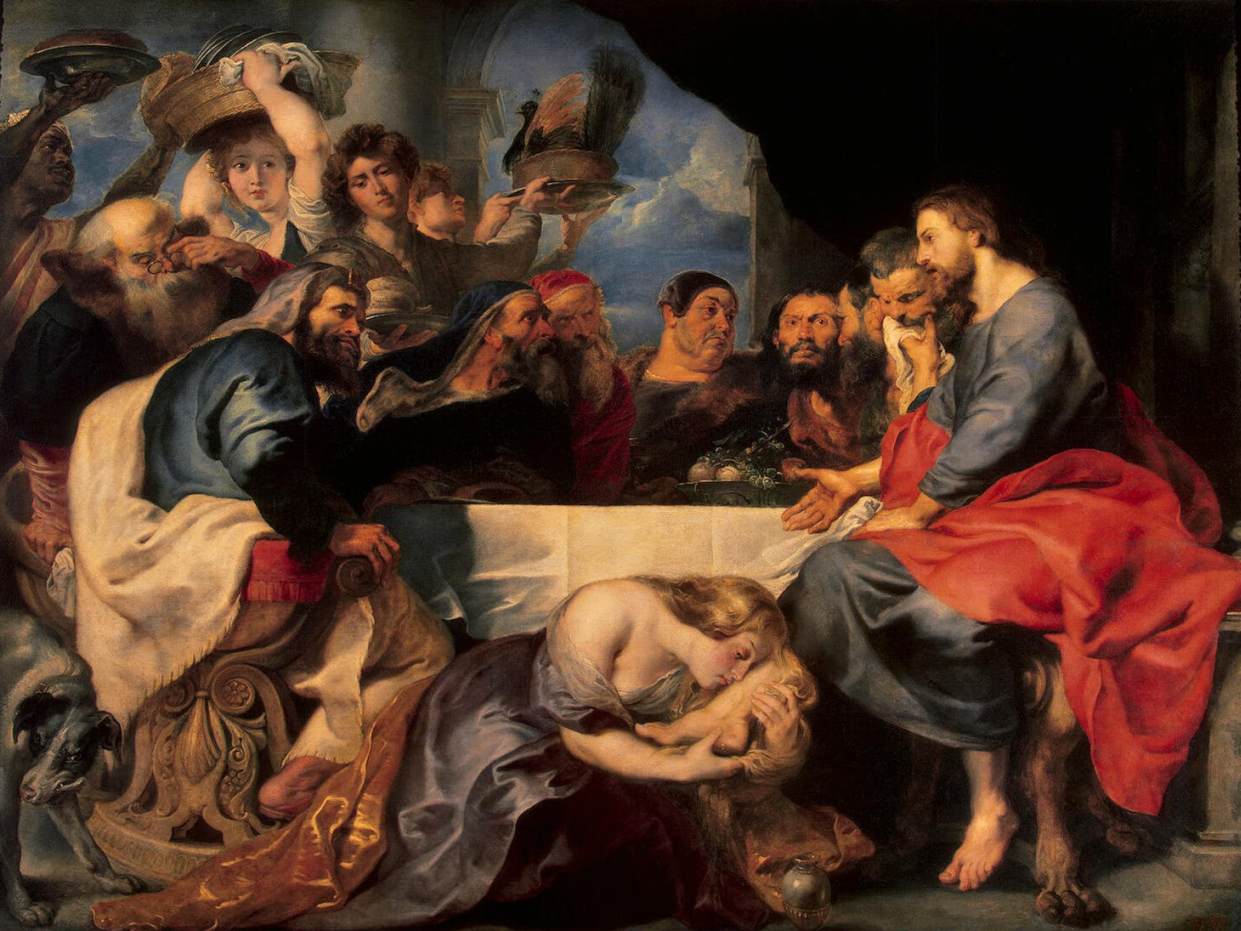Description
The painting "Christ in the House of Simon the Pharisee" by Peter Paul Rubens is a masterpiece noted for its exuberant Baroque style and dramatic composition. This artwork was created in 1618 and measures 189 x 285 cm, making it one of the artist's largest paintings.
The composition of the painting is impressive as Rubens manages to capture the emotion and drama of the moment. The viewer can see Christ seated at the table with the Pharisees, while a kneeling woman washes his feet. The characters are rendered with a great deal of detail and the use of light and shadow creates a dramatic effect that draws the viewer's attention.
Color is another interesting aspect of this painting. Rubens uses a rich and vibrant palette, including warm and cool tones to create a stunning visual contrast. Gold and red tones are used to represent the wealth and opulence of Simon's house, while blue and green tones are used to represent the humility and purity of Christ and the woman who washes him.
The story behind the painting is also fascinating. The scene depicts an episode from the New Testament in which Christ is invited to the home of a Pharisee named Simon. During dinner, a sinful woman enters and washes Christ's feet with her tears and dries them with her hair. The painting shows the reaction of the Pharisees and the compassion of Christ towards the woman.
Also, there are some lesser known aspects of this painting that make it even more interesting. For example, Rubens is believed to have used his wife as a model for the woman washing Christ's feet. It is also known that the painting was purchased by King Philip IV of Spain and is currently in the Prado Museum in Madrid.
In summary, the painting "Christ in the House of Simon the Pharisee" by Peter Paul Rubens is an impressive work of art that stands out for its dramatic composition, its use of color and its fascinating history. It is one of the artist's largest and most famous works and remains one of the most admired works today.

